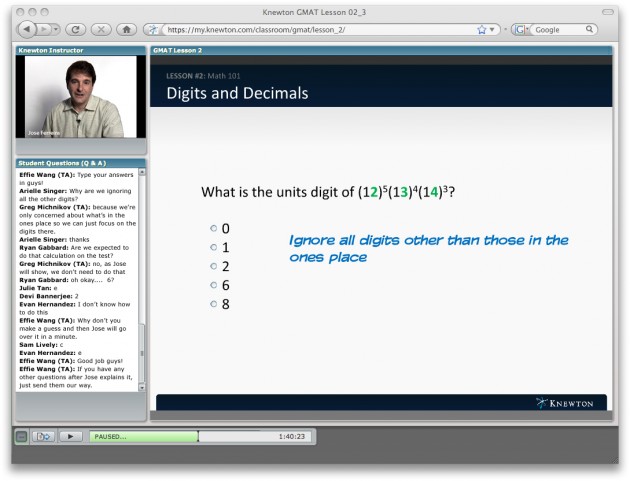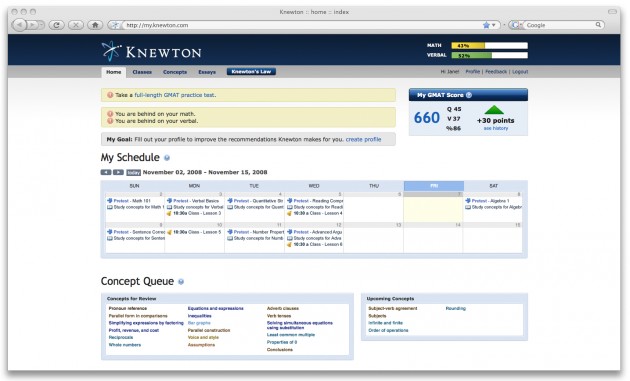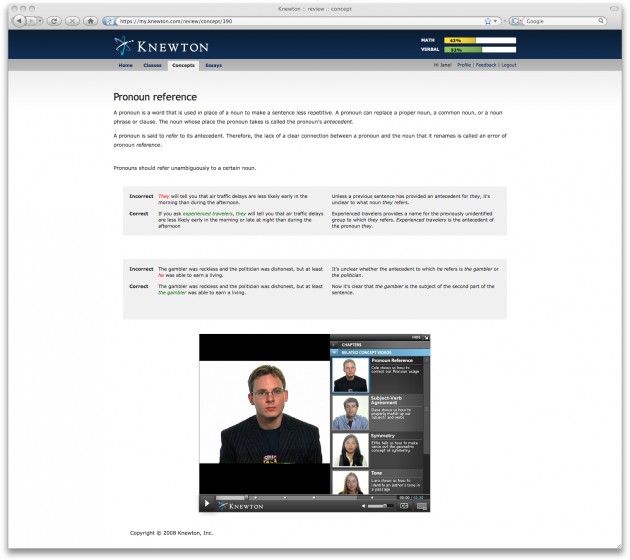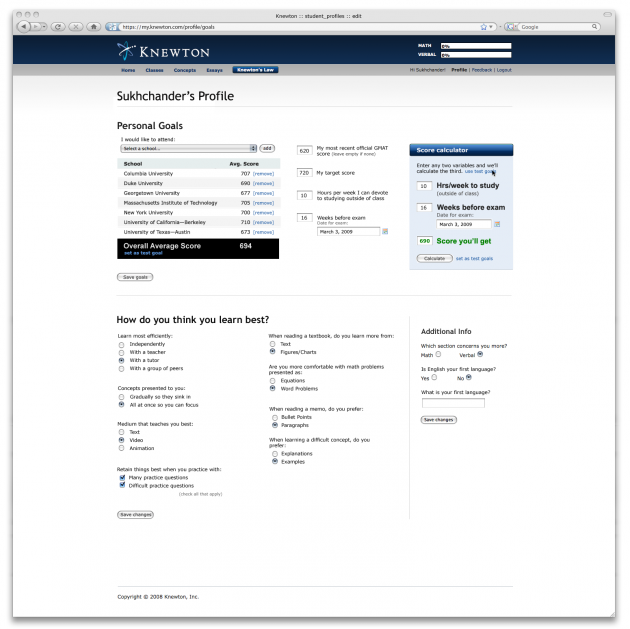Textbooks are so yesterday. Yet student backpacks are still weighed down by them. Replacing those textbooks with software has been one of the great white whales of computing going back at least to Alan Kay’s original Dynabook concept 40 years ago (which he is still working on). Today, there are a slew of startups tackling the problem of e-learning (Brightstorm, iKnow, Grockit, PrepMe), and some progress is being made.
The low-hanging fruit seems to be test preparation and video tutorials, but the bigger prize over time will be augmenting or replacing printed textbooks and increasingly penetrating the global education market. One small startup with the ambition to take that prize is Knewton.
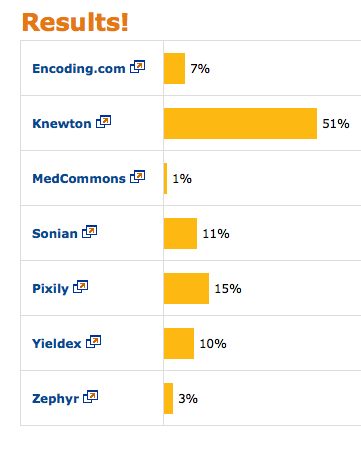
Based in New York City, Knewton raised $2.5 million last May from Accel Partners, First Round Capital, Reid Hoffman, Ron Conway, and other angels. The company was very much under the radar until it showed up as a finalist for the Amazon Web Services Start-Up Challenge last month (see video below). The company is built entirely on Amazon’s cloud computing services (EC2 for computation, S3 for storing video tutorials, and Mechanical Turk for fine-tuning its test questions). And currently it is leading in the voting for the Startup Challenge, with 51 percent of all votes cast. (That kind of online voting can be easily gamed, of course). Actually, the Startup Challenge already has its winner: Yieldex. Knewton did win the popular vote, though.
The founder and CEO, Jose Ferreira, used to be an executive at Kaplan, the test prep giant. Knewton’s two chief test designers, Len Swanson and Robert McKinley, wrote the scoring algorithms for the adaptive learning tests used by, respectively, the Educational Testing Service (which administers the SAT, GRE, and AP tests) and ACT.
Adaptive learning tests are taken on computers. The questions get progressively harder or easier depending on each student’s answers. Thus, they adapt to each student’s knowledge and abilities. Knewton is taking the adaptive learning concept and applying it first to online test preparation services. It is not cheap. Right now it offers a year-long subscription to prepare for the GMAT test that costs $1,390. The company guarantees a minimum 50-point jump in a student’s test score or their money back.
The service combines live video chat with an instructor in a whiteboard environment, along with learn-at-your-own-pace sample questions and tutorials. Knewton finds the best teachers it can get and pays them $500 to $800 an hour. In addition to the virtual classroom, Knewton keeps track of each student’s progress in mastering the thousand or so concepts that can be covered in each test. A “concept queue” keeps the students abreast of what concepts they have mastered and which ones they are weak on. They can click on each concept tag to dig deeper. (See screenshots below).
A big “Knewton’s Law” button automatically presents the next concepts and tutorials each student is ready for at that particular moment, based on what they’ve covered and how they’ve done so far. The content is delivered in whatever format (text, video, animation) and difficulty level that student learns best from for that particular concept.
A color-coded progress bar tells them how they are doing in different categories such as math or verbal. Knewton also shows students what their score would be on the test if they took it that day, based on the questions they’ve actually answered. Students also receive alerts for upcoming classes, homework deadlines, office hours, and the like.
Knewton plans to expand beyond the GMAT to other standardized tests, but the really big opportunity is to apply its learning engine directly to online textbooks. Ferreira explains the concept:
We tag content down to the atomic level. A student who accesses a digital textbook, for instance, any given day they come in, instead of the same syllabus every day, they get a new syllabus based on the concepts they know and the ones they don’t know. If they learn best via video, they get that. If they learn best with text they get that.
Several textbook publishers big and small are talking to Knewton about pursuing partnerships, says Ferreira. Baking adaptive learning techniques right into the textbooks could one day make the online versions of textbooks much better learning tools than the offline versions. Not everubody learns the same way, and the one-size-fits-all approach that the textbook industry takes today needs to be changed.
But can textbooks, tweaked with the right software, ever become good teachers in their own right? The prospects of such a future raises more than just pedagogical questions. The Teacher’s Union might have a fit if software like Knewton’s ever threatens their jobs, but education is so broken in this country that anything that make students smarter should be embraced with open arms. Unless, of course, textbooks are going to cost $1,000 online instead of $100 in print.
(For more of our coverage of e-learning startups, read our profiles of TC50 finalist Grockit and Japan’s iKnow).

